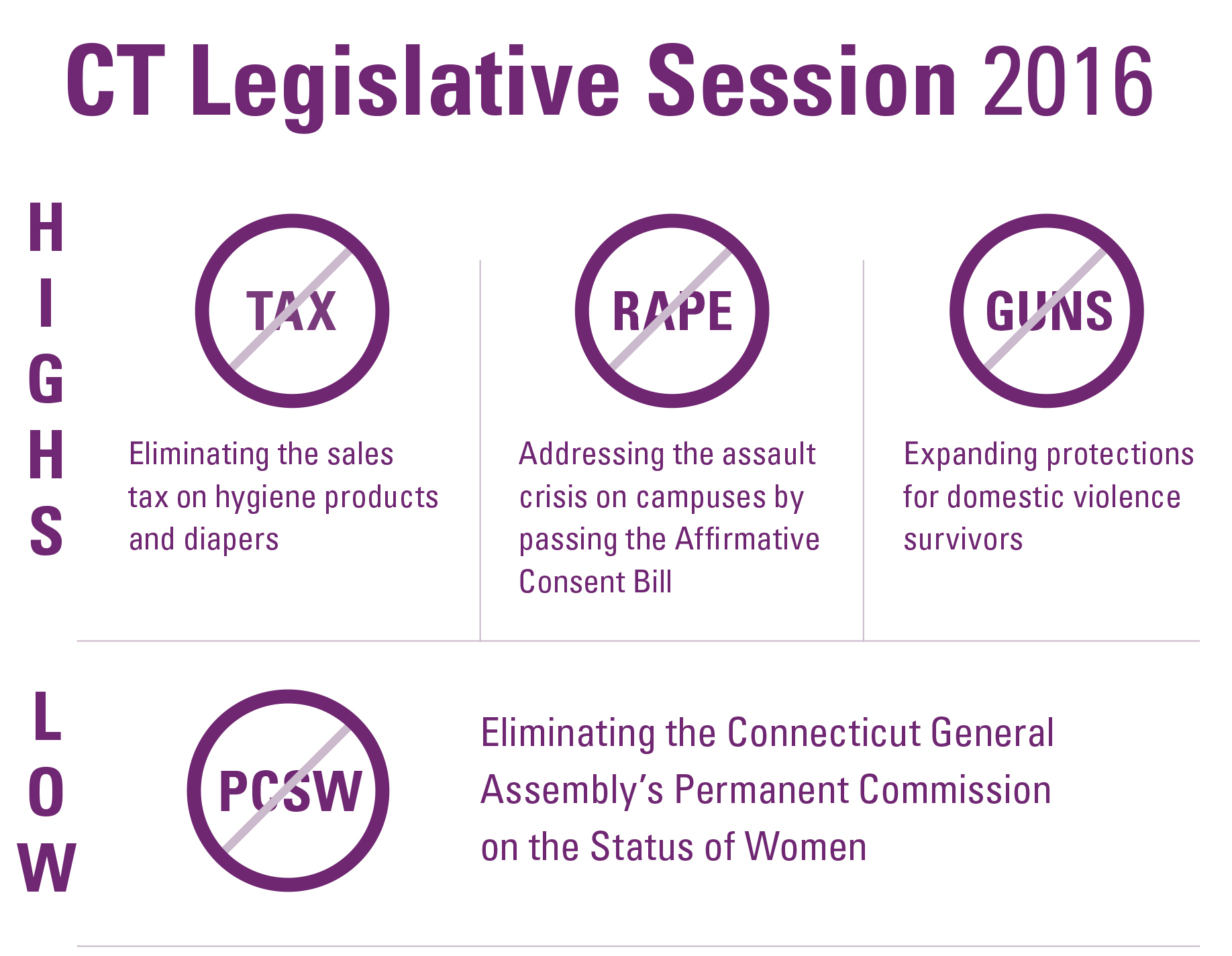Statement on the Elimination of the PCSW
This year's Connecticut legislative session had a few great highs and one very big low.

The 2016 legislative session was marked by significant progress on several issues affecting women.
To address the alarming number of sexual assaults on college campuses, the concept of affirmative consent was introduced and passed. Affirmative consent, also known as "yes means yes," is a knowing, voluntary and mutual decision among all participants to engage in sexual activity.
Another law, set to go into effect July 1st if not rescinded, eliminates sales tax on feminine hygiene products and diapers. The so-called "tampon tax" recognizes that diapers and menstrual products are not optional items.
A third law calls for the removal of guns from the possession of those for which a temporary restraining order has been imposed. In addition, a provision in the law that hindered the prosecution of human trafficking was removed, increasing the likelihood of prosecution for sex crimes against others. Finally, a law was passed that would remove paternity rights from rapists, as long as there is "clear and convincing evidence" a sexual assault took place.
These laws represent the steadfast work of broad coalitions, including CT Alliance to End Sexual Violence, The Diaper Bank, Connecticut Women's Education and Legal Fund, Connecticut Coalition Against Domestic Violence, Planned Parenthood of Southern New England and the leadership of a lynchpin organization, the Permanent Commission on the Status of Women (PCSW).
For 43 years, the PCSW has been working to inform and advance public policy through a gender lens. The PCSW's considerable body of work focuses on systemic change in how the State works for women. Progress regarding pay equity, workforce development, healthcare, hospital mergers and paid family and medical leave has been achieved through the advocacy efforts of the Commission. The PCSW has led the charge, sometimes at the podium and sometimes from the back row, on these issues of particular importance to women since its creation in 1973.
Unfortunately, the 2016 budget crisis led to the CT General Assembly's eliminating the PCSW as it currently exists, opting instead to create a consolidated Commission on Women, Children and Seniors. The Community Fund for Women & Girls believes that this newly created body, to be governed by 63 appointed commissioners, fails to include gender in its legislative mandate in a meaningful manner. Deemed a consolidation of special interest groups, the new commission will attempt to operate with severely limited resources and will no longer be required to research, report and analyze public policy through a gender lens.
